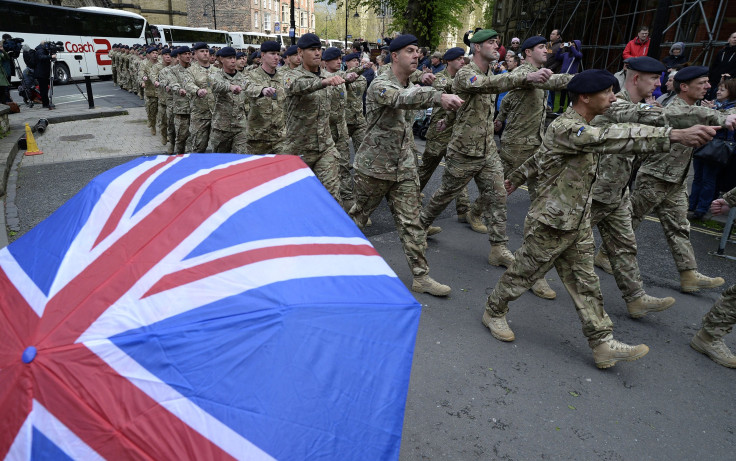British Army Could Be Slashed To Its Smallest Number In 250 Years By End Of The Decade

Up to 30,000 British army troops could be laid off in coming years, reducing the army’s strength to just 50,000, according to a leading British defense policy think tank. If this happens, the country’s army would be reduced to its lowest numbers since the 1770s, when the U.K. lost its American colonies.
The report, released by the Royal United Services Institute (RUSI), reportedly analyzed the budget plans of the main political parties in the U.K., and provided a “pessimistic” and “optimistic” forecast for the country’s military, according to media reports. Malcolm Chalmers, the organization’s director of U.K. defence policy studies, reportedly warned that because no party had so far promised to safeguard the defense budget, the military could face a massive cull during the next parliament.
In the pessimistic scenario, with a 10 percent cut in the defense budget, the total defense personnel, including the air force and the navy, could fall to 115,000, the report warned. Even in the optimistic scenario, the numbers are predicted to fall to 130,000 from the current 145,000.
“In either scenario, the result will be a remarkably sharp reduction in the footprint of defence in U.K. society over a decade,” Chalmers said, adding that the army would face the bulk of the cuts, according to a report by The Telegraph. “The government is not yet convinced that strategic security risks are high enough to justify an exemption for defence from austerity.”
The report comes amid a continuing austerity drive in the U.K. The British army was already scheduled to undergo a 20 percent reduction in regular troop numbers by the end of the decade, to 82,000 in 2020 from 102,000 in 2010, according to a BBC report.
U.K.’s defense cuts have also worried its allies, including the U.S., at a time when relations with Russia’s Vladimir Putin are strained and the threat from the Islamic State group in Iraq and Syria is growing. Last week, Raymond Odierno, chief of staff of the U.S. Army, had said that he was “very concerned” about the impact of the defense cuts.
Richard Dannatt, the former head of the British army, told the Telegraph that the report made for “sober reading,” adding: “People are quite right to be concerned about our overall security, given present world circumstances.”
© Copyright IBTimes 2024. All rights reserved.












